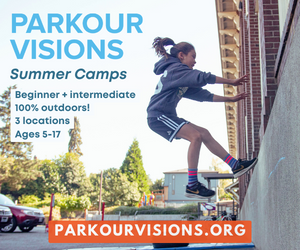A few months ago, I went into my son’s room to tuck him in and kiss him goodnight. It had been a normal school night (back when our kids left our homes to go to school). We’d done homework, had dinner, and played together, but it had been full of lots of meltdowns over homework, intense feelings about dinner, and destruction when he lost the game we were playing.
Walking into his room that night, I was surprised to find him crying. I immediately asked what was wrong and was stunned when he said, “I don’t want to go to middle school!” My first reaction was to tell him that he’d be just fine, not to worry, and to go to sleep.
But something I have learned about kids and their behavior stopped me. And it’s this: Children’s actions are telling us that they are either missing a skill or have a need that has not been met. In this case, the extra button pushing was a sign of the anxiety he was feeling about starting middle school in the fall.
Anxiety comes when something or someone leaves us feeling helpless, out of control, or confused. A traumatic event or repeated stressful events can trick our bodies into thinking that all of our experiences are confusing or out of our control, and we can get stuck in cycles of anxiety.
Anxiety is an emotion that all of us feel at one time or another. And it’s not just reserved for adults. The CDC reports that 7.7% of children ages 3-17 years of age are diagnosed with an anxiety disorder, and the number is rising.

How do we help our kids and ourselves respond to feelings of anxiety in ways that do not negatively interfere with our ability to engage in normal daily life?
Identify Anxiety: Anxiety looks different for everyone. Sometimes it’s restlessness, trouble concentrating, irritability, avoidance, consuming thoughts, tantrums, impulsive or compulsive behaviors, headaches, abdominal pain, or muscle aches. Pay attention to behaviors in yourself and your children. Anxiety might be the source.
Name What’s Going On: Name the anxiety and connect it to the experience. Verbally making the connection between the feeling and the experience in our bodies is powerful. When my son was feeling anxious about middle school I said, “I wonder if you’re feeling anxious when you think about going to middle school. You don’t know what to expect and it feels out of your control.”
Release the Energy: When we are feeling anxious, energy builds up inside us. To move through anxiety in healthy ways, it’s helpful to find productive ways to release the anxious energy. Movement is key. Go for a walk, throw a ball together, ride bikes, turn some music on and dance. Try different ways and see which one works best for you and for your kids.
Get Support: We are not meant to parent alone. It’s helpful to build a network of support for yourself and your children. It can be another mom, a group of parents, or community you can share the highs and lows of parenting with.
And when you’ve tried all “the things” and anxiety is still controlling your family, seek professional help. For your child, look for a counselor who specializes in play therapy. They will know how to help a child use their primary language of play to gain the skills to move through anxiety in healthy ways.
About Hannah

Hannah is a northwest native who loves outdoor adventures with her boys, escaping to new worlds in a good book, and baking without a recipe. She is a play therapist, parent coach, and co-founder of the ACT Parenting Community, an online community for parents who are looking for practical action steps, connection with community, and research-based teaching.


















